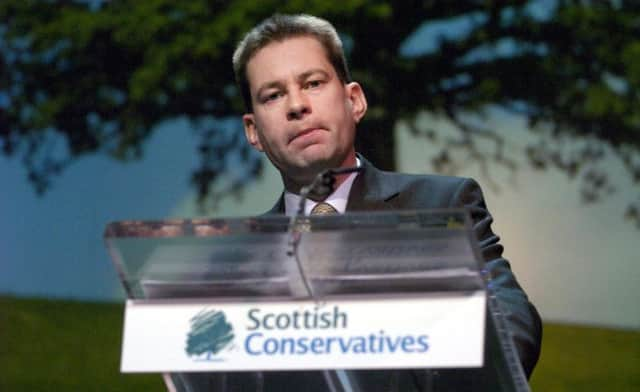Leaders: Federalism offers answers and questions


In the Lib Dem proposal for more powers for Holyrood, drawn up by Sir Ming Campbell, the party’s historical position on a federal Britain is front and centre. More surprising is the recent use of the word by former PM Gordon Brown, while calling for a new codification of the division of powers between the UK’s nations and regions.
“When this is done,” said Mr Brown, “Britain will move as close to a federal state as is possible in a country where 85 per cent of the population comes from only one of its four constituent parts.”
Advertisement
Hide AdAdvertisement
Hide AdNow there is another f-word adherent in the form of Scottish Tory MSP Murdo Fraser, who yesterday called for the creation of a federal Britain, with power for English regions and city states, and the replacement of the House of Lords with an elected Senate.
There will be those who see Murdo Fraser’s intervention as a swipe at his party leader, Ruth Davidson, who defeated him in the battle for Scottish Tories’ top job. But Mr Fraser will argue he is simply building on the work of the Strathclyde Commission by arguing how its proposals for Scotland would fit into a reconfigured UK.
Scottish Tory federalists are not a new phenomenon – Sir Malcolm Rifkind for many years said he supported federalism in theory, his rider being that he thought it unworkable in practice.
But can federalism be more than this week’s fad in Scotland’s constitutional debate? Can it, in fact, be a credible answer to Scotland’s constitutional conundrums?
There is no doubt that the clarity of the federal model is appealing, and there is no shortage of international examples Britain could follow, in North America and in Europe. It is also a neat answer to the West Lothian Question which, if Scotland is to stay within the UK and gain more powers, becomes more and more pertinent.
Home rule all round would require a new English-only legislature. This needn’t be a new body – it could be an English grand committee of the House of Commons – but this would require a formidable amount of political will that currently is nowhere to be seen.
And that is before we consider the perpetually troublesome question of how to reform the House of Lords.
Advertisement
Hide AdAdvertisement
Hide AdThere can be no doubt all this would lead to considerable tangles that would be difficult to unravel, both practically and politically.
For English voters there would be a degree of puzzlement as to why the way they were governed was being completely recast just because of a desire for a different system in the UK’s celtic nations. Some English voters might well regard this as the Scottish tail wagging the English bulldog.
Thuggery cannot be tolerated
THE voices raised in defence of Luis Suarez yesterday defied belief. True, many of them were partisan Uruguayans for whom the prodigious goal-scoring hero can do no wrong. But for anyone not blinded by patriotic Word Cup fervour, there was no legitimate justification for the 27-year-old’s actions in this week’s match against Italy.
The striker bit Italian defender Giorgio Chiellini in the shoulder in a penalty box tussle on Tuesday night. It was a deep enough bite that teeth marks were still visible on the Italian’s shoulder some time after the actual assault.
We use the word “assault” deliberately. This was most definitely not, as Mr Suarez, yesterday claimed, the kind of thing that can happen in the heightened excitement of a competitive football match at the highest level.
That is absurd. There is a no legal or moral bubble that descends over a football pitch at kick-off time. Incidents that could result in a jail term if they happened in a pub do not suddenly become legitimate underneath floodlights.
Mr Suarez’s motivation for biting an opponent probably falls into the realms of psychoanalysis rather than football analysis, but suffice to say this is not the behaviour of a well-adjusted human being.
What is remarkable about this saga is that this is not the first time Mr Suarez has bitten an opponent on the field of play. In fact it is not even the second time. At club level he has already served two extended bans for previous incidents.
There is no room for this kind of behaviour in a game adored by young and old the world over. This behaviour cannot be tolerated.